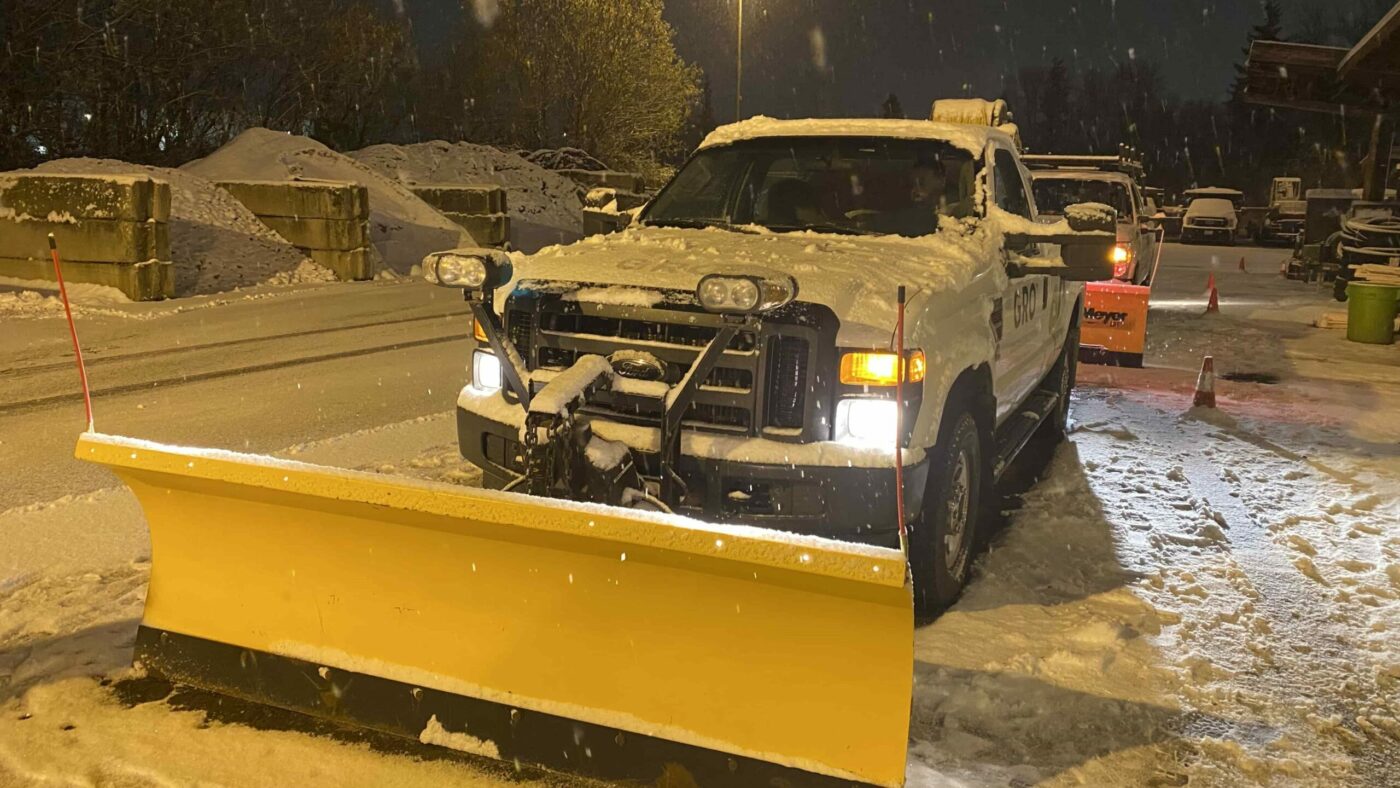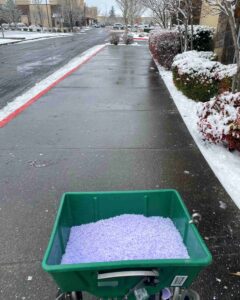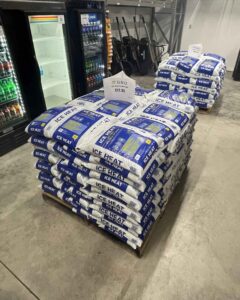Ice Melt and Deicer Guide for the Vancouver WA Area
In this blog we will go over Ice Melt and Deicing Agents (Deicers) to keep your driveway, paths, and hardscaping safe and free of ice and snow.
Maintenance / Garden Services

Snow and ice are not regular events here in the northwest but it is still important to be prepared for them so we can safely carry on with our lives when they do come. In this blog we will go over Ice Melt and Deicing Agents (Deicers) to keep your driveway, paths, and hardscaping safe and free of ice and snow.
Ice Melts and Deicing Agents (Deicers)

Our Maintenance / Garden Services package includes Snow & Ice Mitigation, click here to learn more
Deicers work by reducing the freezing point of the water they dissolve in. Luckily, ice and snow are typically covered in a thin veil of water. This allows for deicers to work even below freezing. This veil of water mixes with the deicer (typically a chloride based salt) and becomes even harder to freeze. This saline mixture continues melting and mixing with the ice’s veil of water, creating a snowball effect of melting, until all the ice has been converted to a saline water with a freezing point below that of regular water. Different salt compounds have different freezing points when mixed with water, and some are less corrosive to pavement than others. Below is a brief list of these salts and their unique characteristics:
Sodium Chloride:
Sodium Chloride (or Rock Salt) is extremely popular because it is readily available and the most inexpensive. However, sodium chloride will not work well at lower temperatures and will corrode metals, concrete, and can kill your plants. We highly encourage finding a better deicer ahead of time so you aren’t forced to use your kitchen salt when in a pinch.
Calcium Chloride:
Calcium Chloride is a great solution because it melts faster than most other agents and melts at lower temperatures than most other agents. Calcium Chloride is also one of the more inexpensive agents. Additionally, Calcium Chloride is the least corrosive to concrete of all the chloride based deicing agents.
Magnesium Chloride:
Magnesium Chloride is slower acting than other chloride based salt agents but is less corrosive.
Potassium Chloride:
Potassium Chloride works well at higher temperatures but is not a viable option unless mixed with the previous chloride deicing agents.
Compound Agents:
Our Landscape Supply carries a compound agent called “Ice Heat” that is perfect for the unpredictable Vancouver WA weather
Compound agents include a mixture of calcium, magnesium, and potassium salts to create a balance of performance and pavement protection. These products will melt down to -7 degrees Fahrenheit, are safe on concrete, environmentally friendly, and safe for pets.
Sodium Acetate:
Sodium Acetate is one of the most environmentally friendly options and typically lasts longer but it is one of the most expensive options.
Sand:
Our Landscape Supply carries sand in bulk, perfect for paving
Sand is a commonly used product to combat snow and ice but it is unique from the salt agents. The two main benefits of sand are the traction it provides to cars and pedestrians and the heat it produces when hit by direct sunlight. The drawbacks are that its melting requires sunlight and is less effective



